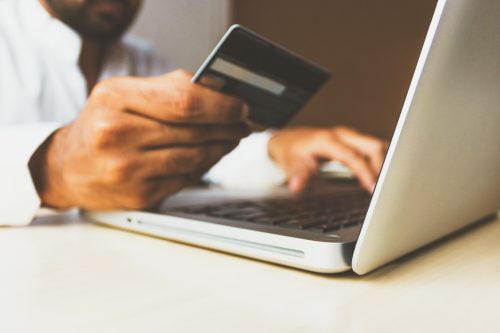BBB Tips for Smart Online Shopping
Posted in In the news on November 9, 2020
A New Trend
The coronavirus has changed consumer behavior, as shopping has shifted online. Companies are racing to adapt. The pandemic has forced many brick-and-mortar businesses to either begin or improve their efforts in the digital space as consumers seek great online shopping experiences to help them purchase their holiday gifts and supplies.
E-commerce sales are set to surge in the coming months. Market research company Forrester sees online retail growing 18.5% this year so that it will reach 20.2% overall penetration in North America.
“We’re seeing a much broader set of the retail ecosystem really seeing e-commerce as a top priority, and that has certainly amplified since Covid,” Bill Ready, president of commerce for Google, said in an interview. “Consumers have dramatically shifted their shopping to online over the past six months.” Shoppers, in large numbers, are embracing e-commerce innovations such as curbside pickup.

There are ways to stay safe while online shopping.
Tips for Safe Online Shopping
For consumers, temptations are many. Advertisements flood the internet, often promoting exciting offers, low prices and free shipping. Unfortunately, customers don’t always receive what they order. In fact, online retailers aren’t always what they seem. So, how can consumers ensure the websites where they shop are legitimate? Better Business Burea (BBB) has valuable advice.
- Know the advertiser: If the site is missing contact information, that is a red flag. Check out retailers at BBB.org before you shop.
- Check a site’s security settings: If the site is secure, its URL (web address) should start with “https://” and include a lock icon on the purchase or shopping cart page.
- Be savvy: Read the fine print before submitting an order. Familiarize yourself with information like refund/return policies and restocking fees.
- Protect personal information: If a site doesn’t have a privacy policy, that’s a big red flag that it may be a scam.
- Think before you click: Exercise caution toward email solicitations and online ads on social media sites.
- Too-good-to-be-true: If a deal is too-good-be-true, chances are it isn’t legitimate. There may be hidden costs, or your purchase may sign you up for a monthly charge. Look for and read the fine print.
- Beware of phishing: Phishing emails can look like a message from a well-known brand, but clicking on unfamiliar links can place you at risk for malware and/or identity theft.
- Use a credit card: In case of a fraudulent transaction, a credit card provides additional protections; it’s easier to dispute charges that you didn’t approve or to get your money back if there is a problem. Debit cards, prepaid cards or gift cards don’t have the same protections as a credit card.
- Keep documentation: Save a copy of the confirmation page or email confirmation until you receive the item and are satisfied.
- Keep your machine clean: Install a firewall, anti-virus and anti-spyware software for network security. Check for and install the latest updates and run virus scans regularly on your computer, tablet and smartphone.
Always look for businesses that follow BBB Accreditation Standards and BBB Standards for Trust. For more tips and news from BBB, click here.